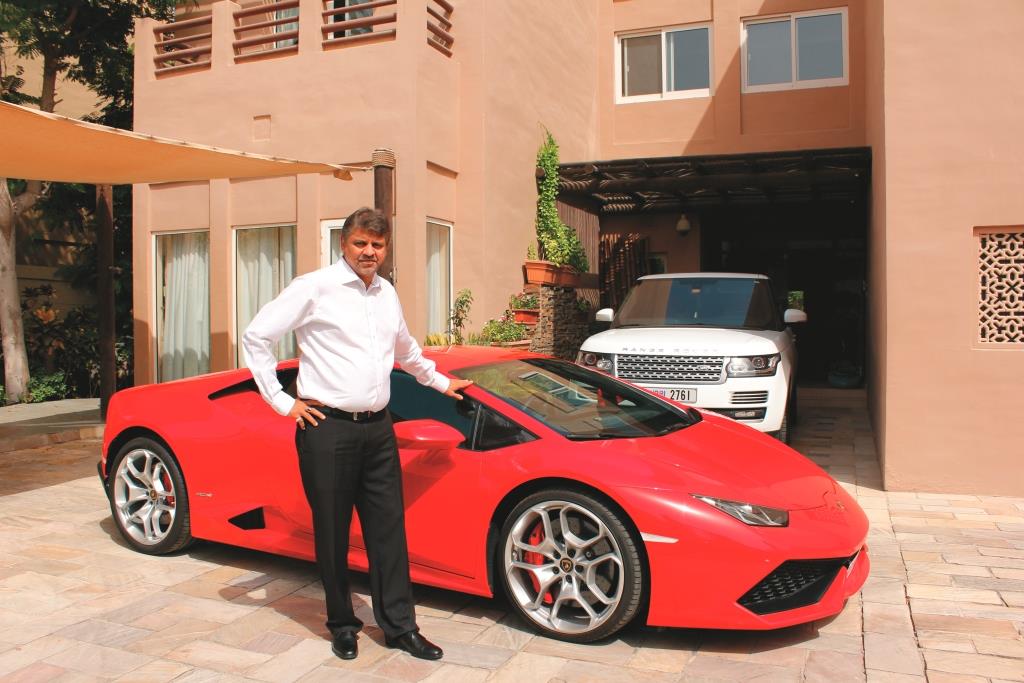Since its inception 22 years ago, Unique Maritime Group (UMG) has grown from a company with three employees to more than 500; a local business to an international operation with five divisions across seven global regions; and a foray for Himanshu (Harry) Gandhi into entrepreneurship within the oil and gas industry that was purely accidental.
“You’re not born a businessman, you just become one when you grab an opportunity,” he says.
It’s a blistering Middle Eastern morning en route to meet him in Sharjah, United Arab Emirates, where UMG’s headquarters are located in the Hamriyah Free Zone, an industrial area far from the glamour of Dubai, its emirate sibling.
The quintessential businessman, Gandhi has 25 years of industry-savvy and a knack for seizing opportunities to form partnerships and acquire companies to expand his empire. His initiation into entrepreneurship was by chance, but his success has been no accident.
The son of an electroplating engineer born into a middle-class family in Mumbai, Gandhi started out on a different path with a chemistry degree from Bombay University, later studying computer science in Singapore when his father was transferred there in 1981.
Loading...

A programmer with Associated Onshore Offshore Services (AOOS) in 1984, Gandhi quickly graduated to sales engineer, ultimately being given the opportunity to open a Middle East branch in Dubai as general manager. The future looked bright but Gandhi was about to meet his first challenge.
“In 1986, there was a big oil price drop and they decided to withdraw from this area,” he says. “I presented my then chairman with a plan and basically became owner with him of the company – so I got into business because my employment was shutting down.”
Restarting in 1993 as UMG, the company grew as a specialized equipment supplier providing offshore and onshore services including the sale, rental, manufacturing and servicing of equipment to the oil, gas and marine industries.
UMG evolved as oil and gas opportunities in the Middle East grew and Dubai became an international hub. Today, Gandhi has grown the business by looking beyond Middle Eastern shores. His investment in African companies has seen technology out of the continent excelling in one of the biggest oil and gas industries worldwide.
One such company in Cape Town, Unique Hydra, began as a small team of engineers. Approaching Gandhi with their diving engineering equipment, he recognized its quality and began selling it in the Middle East. Seeing the potential for growth with financial and commercial help, he provided infrastructure and resources, gave them challenging hi-tech jobs overseas and set up a huge factory.
“The amount of talent we have in South Africa is incredible,” says Gandhi.
As a result, Unique Hydra has grown from a small equipment manufacturing company to the leading diving equipment supplier to the world.
Much of UMG’s technology is developed on the Unique Hydra premises; Gandhi says his company has grown overseas due to their business in South Africa. UMG has spent the last three years investing in research and development there which has culminated in a new product: HYDRACraft. A marine vessel that is used to support diving operations.
“It’s more out of Africa and we globalize it,” says Gandhi.
Also operating in Nigeria as Unique Wellube, exporting their services to various industries, Gandhi says UMG wants to keep growing in Africa. Opportunities exist from Angola, Ghana and Gabon to Kenya and Tanzania.
“As a group, for us, 25% of the market comes from Africa, so we are going to regionally diversify there.”
Gandhi has witnessed a transformation in Africa’s workforce in the last decade.
“There is a lot of demand from the workforce to educate themselves further so that they can economically grow themselves and that is very amazing.”
Building a multinational operation hasn’t been easy.
“Today, I face the same challenge I had when I was a three-man company; finding the right people to do the right jobs and to be loyal.”
Dr. Saeed Alhassan, Director of the Gas Research Center and Assistant Professor at the Petroleum Institute in Abu Dhabi, agrees.
“Sustainable development of the human capital is among the most challenging aspect of the oil and gas industry because training and retaining top notch talent requires a good deal of investment; aligning human development with business strategy has to be accounted for.”
Gandhi says oil and gas is a good industry because of its growth cycle.
“The demand for oil is continuing to grow; there is still not enough oil in the world to take care of the final demands of people.”
He says oil and gas is cyclical and in his 25 years in the industry he has witnessed three cycles.
“It’s the case of it consolidates, it grows, it consolidates, it settles down, then it will grow again.”
Tomorrow is always on Gandhi’s mind, but today he acknowledges he wouldn’t have amassed such success without his team. He says good camaraderie makes employees family and if they value company culture, the organization will always succeed.
Gandhi expects to reach seven divisions in three years by growing UMG’s business lines, appealing to the same customer with different technology.
“We innovate, we learn, we buy the technology or we acquire a company doing that and so we build or business.”
He enjoys giving back, from the Lighting a Billion Lives campaign (LaBL), a solar lighting initiative where he helped light up 23 villages across India, to partnering with the EKAL Vidyalaya Foundation in India to fund 50 schools for impoverished children.
For this CEO, success isn’t represented by his Lamborghini with its elite three-digit license plate or his villa in the posh Emirates Hills district in Dubai; hard work is paramount.
“I still work from nine to five every day!”
Loading...
